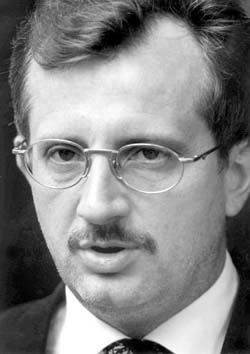EU’s Common Foreign and Security Policy? Let’s be patient!

From today’s perspective history of the European Union is a process of small scale projects, which with time, were being developed into endeavours of grand magnitude that influenced millions of people and their daily lives in many countries of Europe. In the past the European unity was solely about coal and steel — at present, it is about common market, common agriculture, single currency or abandoning of internal border checks — so called Schengen area. In many fields of life European nations have pulled their resources together in order to benefit from effect of scale. Still however, there are areas in which Member States have retained their full sovereignty.
The most vivid one of course is so called common foreign and security policy. Despite its ambitions to be among world leading players, European Union is practically the only one of them, which does not have neither comprehensive foreign policy nor the army, which would serve as “prolongation” of its diplomatic efforts. As the result, most of the time, it can only use so called soft powers, which in today’s world, are of a very limited efficiency.
Occasionally, foreign policy of the EU can be successful, as it was for example in number of places, where the EU police missions were sent or during the Orange revolution in Ukraine, when the entire Europe spoke with one voice and contributed to a peaceful solution of the serious political deadlock. This is however an exception rather than a rule.
The recent example of sending the European intervention forces to Chad clearly illustrates the shortcomings of today’s CFSP in Europe. It took weeks until the Member States willing to take part in this mission committed the necessary military equipment — the air lift as well as the essential helicopters and field hospital. It may take even more time until the EU mission will start to be operational. Even then, the result of the mission will not be certain.
It goes without saying that Europe needs a real CFSP. For now, however, it is only a dream, which one day may come true. We, the Europeans are getting there, but only little step by little step. Today, it is still old good NATO, which guarantees Europe’s security. This is the only military tool, partly at Europeans’ disposal, which has proven its capabilities and usefulness in Europe and beyond. For a time being, any talk about developing solely European military capabilities, in opposition to NATO, is sheer blasphemy. For a long time to go, we will not have resources, not too mention political will to do so. Even the Lisbon treaty, hopefully ratified this year by all the Member States, which introduces certain institutional reforms in the area of CFSP — such as the post of de facto EU foreign minister, who will be assisted by the EU external service — leaves unanimity as a decision method in the EU Council. Thus giving the Member States veto power in all decisions in the area of CFSP.
Not to sound too pessimistic about the future prospects of CFSP, I will wrap up this week’s column by coming back to the notion that the EU is an ongoing process. The further development of Common Foreign and Security Policy of the European Union is therefore inevitable. It is just a question of time. Today, in order not to be frustrated too much, we should trim our high ambitions accordingly and simply be patient!






